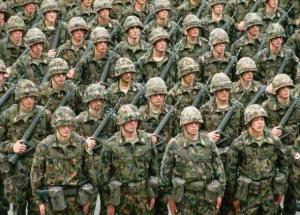
Today’s edition of Antiwar.com highlights a piece by Jeff Cohen where he asks would the US media have handled the Snowden Affair any differently, if it were state-controlled? This touches on something I have been thinking about for a while.
Once again, for the umpteenth time, there is a situation where the general public is heavily divided on an issue, and yet the so-called “mainstream media” speaks on it in near-perfect unison. This begs the question, just how mainstream such a media actually is. You would expect a significant portion of a media that was actually mainstream to stick up for Snowden as is the stance of a very large part of the public. Cohen reports one recent poll found 53% of Americans, and 70% of those aged 18-34, held a favorable view of Snowden’s actions.
So if the views of the major media outlets on issues such as the Snowden Affair, do not actually correspond with the views of the mainstream public, what do they correspond to? The answer is that each and every time they correspond with the view of the regime. Whether we are talking issues like the financial bailouts of 2008, which the American public was dead set against, or the Iraq invasion of 2003, on which the public was split right down the middle, the regime could always count on major media to overwhelmingly propagate its views.
That being the case it is clear the term “mainstream media” is in fact a huge misnomer. The proper term for major media in the US is actually “regime media”. True, the major media outlets in the United States are not actually subject to control by state employees in editorial boards and censorship bureaus, but so what? They are subject to the same basic system of incentives and controls just the same. The controls are applied by owners and sponsors of the outlets, who, for either commercial or ideological reasons, for the most part have a strong personal identification with the regime. The end result, is the same, major media services the public, but for the benefit of the regime.
Speaking of the regime media as the “mainstream media” therefore gives it credibility it does not have. Sure thanks to its greater means and state favor its output is more voluminous and has much greater visibility. However, this was also true for example in the Soviet Union. Why would the situation in the US, which has proven a more successful state, be any different? The key point is not visibility, but function. Only the independent media actually attempts to serve its audience, not the regime. Instead of speaking of the “mainstream” and its counterpart the “alternative” media, we should refer to both by their real names, the independent media, and its counterpart the regime media.
Continue reading →








